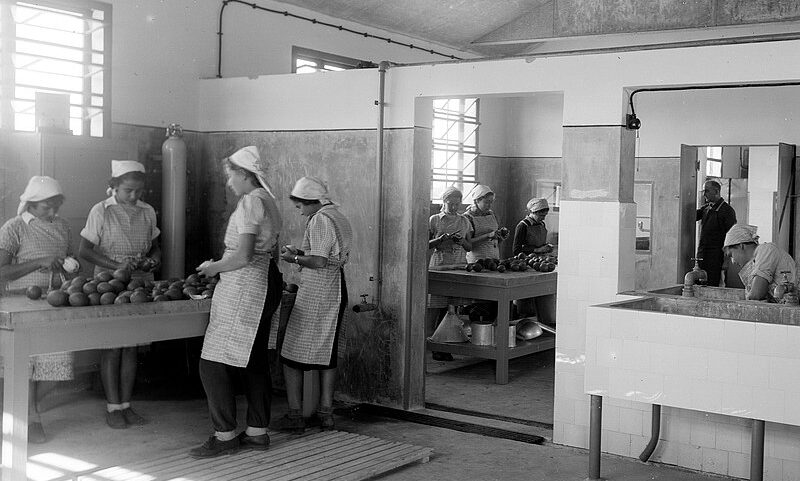
08 Mar The Bentonville Cannon Factory
If you are a native or even a southerner, you will be able to interpret the title of this article. Years ago when I was small I remember hearing relatives talk about working in the “Cannon Factory.” But there never really was a cannon factory here, was there? Of course, they were saying “Canning Factory.”
The canning industry really took off in Northwest Arkansas with the boom in the apple industry around the time the railroad came to our area in 1881. The production of apples was so huge that before the railroad came, apples were rotting in storage for lack of a means of transporting them all to market. The apple industry not only shipped apples – from 40,000 acres of orchards in Benton County and just less in Washington County – but set up evaporators, canning factories and the Macon-Carson Distillery to make alcohol. Our two counties were the largest apple producers in the entire country.
Nearly every little town and village had an evaporator to dry apples. Most of them eventually had canning factories also, first for apples, and then for peaches and tomatoes. One of the earliest still in existence is the Allen Canning Company in Siloam Springs, still in operation after 92 years.
The economic engine of the apple industry is largely why Benton and Washington Counties are still two of the largest and most prosperous in the state. Sam Walton, John Tyson and J. B. Hunt built on the shoulders of those who went before them, building empires on top of a defunct empire of fruits and vegetables.
Goodspeed, in their 1888 History of Bentonville County, et al, stated:
“The Bentonville Canning and Evaporating Company is of recent origin, and its officers are I. B. Gilmore, president: W. B. Lyon, secretary, and F. E. Gilmore, treasurer. The capital stock of the company is $20,000; cost of plant, $10,000. of which $5,000 was for machinery. Their main building is 30×80 feet, and three stories high. It was built in February, 1888, by Plummer & Son, of Leavenworth, Kas., and is equipped with the Plummer process for evaporating fruit. Its capacity is 800 bushels of apples per day, and from fifty to sixty hands are employed. The contemplated canning factory is not yet erected. W. L. Plummer & Son have received for their process of evaporating fruit the medals from five world’s fairs: Centennial, in 1876; Paris, in 1878; New Orleans; Melbourne, Australia, and Chili. South America.”
The factory was completed by July 1888 and went into production immediately. By 1907, 400 locals worked there. At completion they could process 450 bushels of apples or 200 bushels of peaches per day. A bushel of apples holds 125 medium apples, so that’s 50,000 apples a day! And that’s just in canning, not including the ones shipped direct whole, evaporated or made into liquor or vinegar. That’s an empire folks! I’m having trouble placing it on the map, but feel certain it was along the railroad around SE 3rd and D, near the two evaporators, warehouses, and the ice plant.
As you know, or maybe you don’t, the apple blight and world economy slowed the apple business to a near halt. Canning factories continued operations until the late 1940’s, except for a few, and the era of big fruit was over.
The need for a “Cannon Factory” in Bentonville had gone by the wayside, to make room for bigger innovators like trucking, chickens, and retail. It didn’t happen overnight, but when it did it was some of the biggest the world has seen. In our own little town.



Sorry, the comment form is closed at this time.